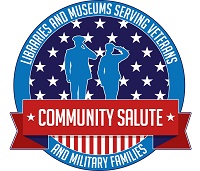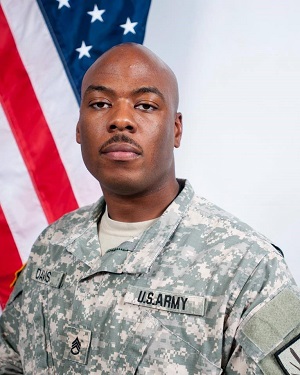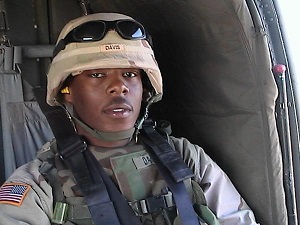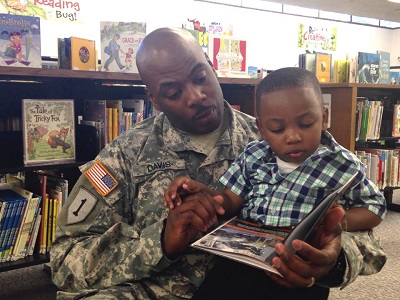Blog Posts | November 2, 2016
Share This
Editor’s Note: In September, IMLS announced a cooperative agreement with FSG to strengthen the ability of libraries and museums to fulfill the unique and critical needs of veterans and military families. Through the Community Salute program, IMLS will gather information from a variety of key stakeholders in the library, museum, and military communities; identify opportunities for enhancing community services; and develop frameworks, tools, and resources to strengthen the role libraries and museums have in addressing the specific needs of veterans and military families. This is the first in a series of Community Salute blogs highlighting the role that many libraries and museums already play in the lives of veterans and military families.
By Michael Davis Jr.
IMLS Social Media Manager

Being a military veteran means a great deal to me. Within six months of joining the U.S. Army, I was deployed to Iraq in support of Operation Iraqi Freedom between the years of 2004 and 2005. It was definitely a culture shock for me, but then again I was only 21 years old, full of energy, and my adrenaline was still pumping from my experience in Basic Combat Training. Growing up in the inner city of New York, Harlem to be exact, I felt a sense of pride serving my country and accomplishing goals in my life. Looking back I can confidently say that joining the Army was the plot point that turned my life around, and I can credit that decision, strangely enough, to my library card.
It was a summer afternoon on the corner of 138th Street and Adam Clayton Powel Jr. Boulevard in Harlem, New York, right around the corner from my apartment building. I was about 18 years old, dealing and shuffling cards with a few friends. In the midst of the game, we were approached by a few police officers. I don’t remember why we were approached and I definitely don’t recall why we were searched. They told each of us to put our hands on the brick wall and patted us down, taking a few things out of our pockets. They took my wallet and I soon found out they had taken a small bag of marijuana from one of my friends. I saw in my peripheral vision all my friends being handcuffed. When I was finally permitted to turn around, the officer was showing something from my wallet to another police office and said, “Hey, look at this” and chuckled a little. When I looked to see what it was I realized that it was my library card from the The Schomburg Center for Research in Black Culture. He then asked me, “What are you doing here?” and I responded, “I live here, officer.” He paused for a second or two, put the library card back in my wallet, and said, “Go ahead, and get out of here,” with a sympathetic tone. I thanked the officer and quickly walked as far away from the area as I could, and as I did, I saw my friends in the back seat of the police van. I knew then that I needed to do something with my life, even though I wasn’t engaged in criminal activities.
Very soon after that incident, I signed up for the Army, and a few months later, I was at a small post in Ansbach, Germany. With the Army, I had the opportunity to travel to many places around Europe as a service member and veteran – and yes, as I mentioned earlier, Iraq was one of them.

While deployed, I ran, kept my head low, and found cover when I was shot at, and even after that experience, I have to say, it was actually the library card, not the armor I wore, that saved and my life.
Because when I wasn’t playing cards on the corner, I remember frequently visiting the Schomburg Center for Research in Black Culture to take out books, engage in quiet times of studying for school, and to learn more about my African-American history and culture.
And this habit and joy from libraries and museums have stayed with me my whole life. In fact, I recently had the chance to visit the new National Museum of African American History and Culture. I especially cherished reading about the African-American soldiers who fought in the previous wars. Libraries and museums have always been a place for me to gain knowledge through the many resources available.

Now, fast-forward a decade later, I have a wife, two kids, and home in Maryland. I still frequently visit my local library, Anne Arundel County Public Library. My wife and I faithfully take out about five books a week for my five-year-old son. I can honestly say that when I read to him every night, he is not the only person learning. I’m realizing that you’re never too old to learn. And I know now that books have a way of not only increasing general knowledge but also for igniting imagination in children.
As a service member in the Maryland National Guard and a veteran from New York City who now owns a home, I know my son is already on a better path than I was, and I see how a library card is saving his life as well.
Michael Davis Jr. is the social media manager for IMLS and a proud member of the Maryland National Guard. He can be reached at mdavis@imls.gov
